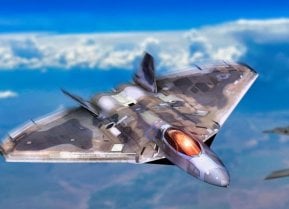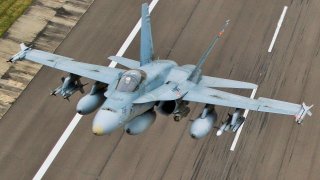North Korea and the War Threats: Is Kim Jong-un Bluffing?
To paraphrase Theodore Roosevelt, North Korea usually speaks most loudly when it can’t afford a stick. American policy would be wise to not overreact
Three decades ago, when I was a graduate student writing a dissertation about U.S.-Korean relations in the 1960s, I often heard two comments from people around me. Most frequent was the one from my wife, asking something along the lines of “Aren’t you finished writing that thing yet?” But a close second was the one that came from anyone who learned what I was writing about, “Too bad your book isn’t out yet, since North Korea is causing so much trouble right now!” I always gave the same response, “It’s North Korea. They will be causing trouble whenever I am finished.”
Rarely have I uttered words that were more prescient. My book came out in 2002. North Korea was in the news then, it was in the news before then, it was in the news after then, and it will likely be in the news in the future. The DPRK, like the Rolling Stones, Budweiser, and Senator Mitch McConnell, just seems destined to be a constant presence in American life.
This most recent wave of provocations, some argue, feels different. And there is plenty of frightening evidence to support the claim, ranging from the North’s growing connections with Russia to its increasingly hostile rhetoric to its expanded weapons testing. Nevertheless, I remain skeptical that the angst is justified. North Korea, of course, remains one of the greatest threats to world peace and stability and one of the most formidable challenges facing the international community. I am just not convinced that those threats and challenges are worse at the current moment than they have been in previous iterations.
The simple explanation for my confidence is what we might call the “Black Label Theory.” Kim, by many accounts, loves Black Label scotch whiskey, and being a rational actor, he recognizes that his ability to consume it will be severely impaired if he is dead. And, if a serious military conflict with South Korea does emerge, dead is what he certainly will be. For all of Kim’s belligerence, North Korea’s conventional military capabilities are significantly inferior to those of its Southern rival, and any use of WMDs would invite a response that would decimate the North and eliminate the regime. DPRK nukes might be good for bluster, coercion, and even defense, but their offensive use would likely mean that the only Black Label Kim ever sees again is the one on his coffin.
The more complicated answer is that, historically, DPRK bellicosity reflects internal weakness, not external ambition. For decades, North Korea has engaged in its most provocative behavior when the regime faced its most significant domestic challenges. This relationship does not appear to be coincidental, as the government typically used external provocations to justify its economic shortcomings by blaming foreign machination, to purge political opponents by charging them with insufficient revolutionary ardor and questionable national loyalty, and to rally the people behind the Kim family.
In the late 1960s, for example, Kim Il-sung ratcheted up tensions on the peninsula to a level that was far worse than they are today, but the DPRK’s communist allies recognized that the real target was the North’s population. Bellicose speeches made by Korean officials were, wrote the Czech Embassy, “mostly propaganda in nature, and are used mainly for the DPRK's internal propaganda.” A letter from the East German embassy in North Korea agreed, noting that “there has been a very intense campaign among the people concerning preparation for a potential war... Probably for the DPRK,” it concluded, “there are mostly propagandistic reasons behind the present positions.”
If one were to make two charts––one marking the periods of particular DPRK belligerency in foreign policy and another noting times of internal strife and even challenges to the Kim family regime––the high points for both (1968, 1976, 1994) would largely overlap. My suspicion is that 2023-4 will be the same. Kim doesn’t want war. He wants domestic control, and he will use the threat of the former to try to ensure the latter.

To paraphrase Theodore Roosevelt, North Korea usually speaks most loudly when it can’t afford a stick. American policy would be wise to not overreact.
About the Author
Mitchell Lerner is Professor of History, Director of the East Asian Studies Center, and Faculty Fellow at the Mershon Center for International Security Studies at The Ohio State University.
Image: Creative Commons for main image. Intext image is from Shutterstock.


